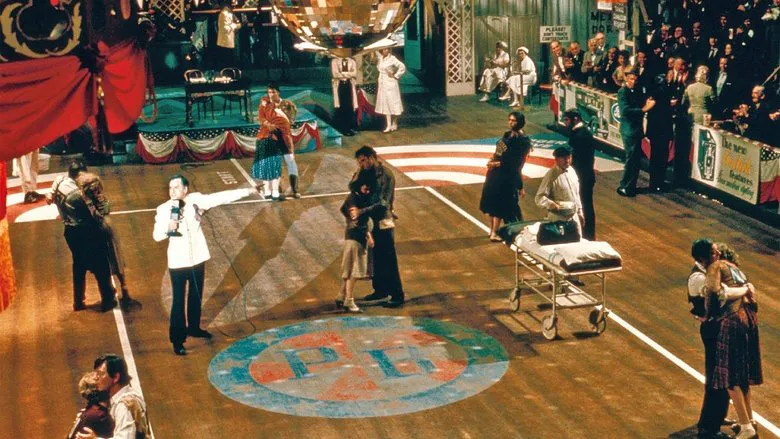“Horseplay”: A Feast for the Eyes, A Famine for the Narrative
“Horseplay” (盗马记) emerges as a curious anomaly in cinematic output: a film whose plot, by nearly any measure, remains remarkably uninventive and forgettable. Despite the inclusion of Hong Kong’s comedic rising star, Wong Cho-lam, whose talent consistently garners laughter, his efforts, regrettably, fall short of salvaging this production. And yet, paradoxically, “Horseplay” carves out a unique niche in the annals of Chinese cinema. Few indigenous works have managed to capture the breathtaking beauty and authentic ambiance of Europe with such stunning clarity. In essence, it feels less like the adventurous treasure-hunting comedy it purports to be and more like a lavish, extended travelogue.
The Conundrum of Star Power and Substance
The entertainment industry often demonstrates a peculiar inverse correlation: the more glittering the ensemble cast, the lower the audience’s underlying expectations should arguably be. The infamous box-office disaster “Switch” (富春山居图) from a few years prior serves as a stark reminder of this axiom. While “Horseplay” wisely steers clear of the outright cinematic absurdism that plagued “Switch,” its gathering of notable stars somehow manages to avoid a complete and utter cinematic breakdown. When viewed in isolation, the performances from the seasoned Hong Kong actors are commendable. Tony Leung Ka-fai, as always, exudes a characteristic charm that anchors his presence, while the comedic interplay between Eric Tsang and Wong Cho-lam offers glimmers of amusement, representing a generational crossover in Hong Kong comedy.
A Narrative Disjointed and Devoid
The true structural failing of “Horseplay” becomes glaringly apparent when these seemingly disparate elements are awkwardly melded into what’s intended to be a cohesive treasure-hunting suspense comedy. The storytelling meanders without a clear sense of purpose, utterly devoid of substantive plot developments or genuine comedic wit. Worse still, it struggles to maintain even a basic semblance of logical coherence, leaving viewers scratching their heads. The finale feels jarringly rushed, culminating in an almost farcical revelation of the supposed mastermind. Consequently, as the credits roll, the lingering thought in the viewer’s mind isn’t a complex question about thematic depth or intricate plot twists, but rather a simple, almost wistful inquiry: “Where in the world was this magnificent film shot?”
The Director’s Artistic Misstep
Lee Chi-Ngai, in his direction of “Horseplay,” inadvertently showcases his prowess more as a production designer than a narrative filmmaker. One might even argue that his talents would be far better utilized helming a lavish nature documentary rather than attempting to direct a feature film of this genre. The ensemble cast, featuring individually celebrated actors, combined with the breathtakingly beautiful depiction of European locales, initially creates a harmonious fusion of quintessential Hong Kong cinematic aesthetics within an exotic European tapestry. This truly represents another notable leap in innovative visual approaches for Hong Kong cinema. However, a film’s ultimate success hinges on its director’s ability to seamlessly weave individual components into a cohesive, functional whole. This is precisely where “Horseplay” falters. Lee Chi-Ngai demonstrates a distinct lack of effective control over the film’s pacing and narrative flow. Many of the most thrilling and engaging sequences teased in promotional trailers are merely glossed over or quickly rushed through in the actual movie. Even highly anticipated moments, such as Wong Cho-lam’s eagerly awaited and much-hyped transformation into a black-faced nun, regrettably fail to land with any genuine comedic impact. The actors’ commendable efforts often come across as forced or exaggerated, Tony Leung Ka-fai’s undeniable charisma proves insufficient to stitch the fragmented plot together, and both Ekin Cheng and Kelly Chen deliver performances that regrettably fall into the realm of mediocrity. It feels as if the director’s singular focus was almost exclusively on showcasing the visual splendor of Europe. “Horseplay” ironically parallels a gourmet broth, meticulously crafted with countless premium, expensive ingredients, yet inexplicably missing the one utterly essential – and perhaps simplest – component: salt.
Final Verdict: Visually Sumptuous, Narratively Sparse
In conclusion, “Horseplay” is an undeniably visually arresting film, set against the magnificent and diverse landscapes of Europe, but one that ultimately leaves a lingering sense of narrative disappointment. Nevertheless, for those viewers willing to overlook or tolerate its undeniably mediocre and uninspired plot, there is a singular, worthwhile experience to be found: simply soaking in the enchanting European atmosphere, particularly during the graceful, memorable dance shared between Tony Leung Ka-fai and Kelly Chen to the evocative melody of “The Best Night of My Life.” This brief, beautiful interlude provides a glimpse of the film’s true potential, unfortunately overshadowed by its structural shortcomings.